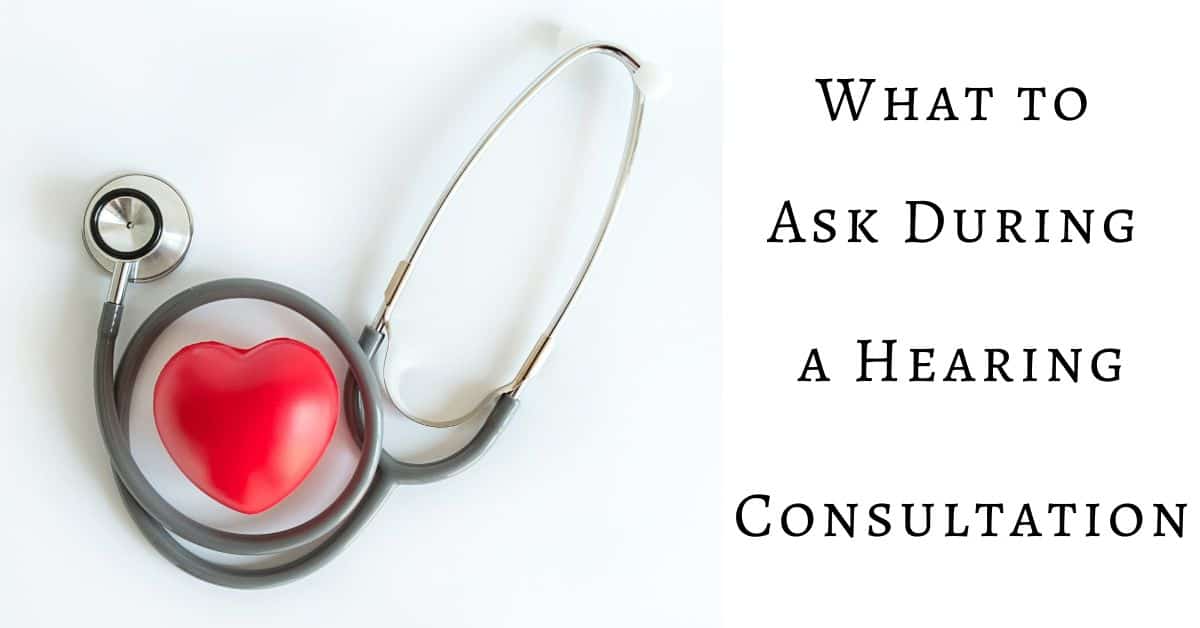Scheduling a hearing consultation is a major step in being proactive about your health! Congratulations on making the decision to address any hearing concerns you have. Learning more about hearing health and taking action can truly improve the quality of your life. To prepare for your consultation and feel as comfortable as possible, knowing what to expect and ask during your appointment can be very helpful.
Hearing Test: What to Expect
Hearing assessments are a noninvasive, painless, and relatively quick process that involves the following:
- Medical intake: similar to other medical appointments, you will be asked to complete intake paperwork that will be reviewed with an audiologist or other hearing healthcare professionals. Questions will cover factors that can contribute to hearing loss- medical and genetic history, hearing concerns, and lifestyle (job, hobbies, activities etc.).
- Hearing exam: the hearing test begins with an inspection of your outer ear and ear canal with an otoscope, a small instrument inserted into the ear. This allows the audiologist to check for any injuries or earwax (which will be removed if necessary). Wearing headphones in a quiet room, you will be guided through speech and sound played at various volumes and pitches. You will indicate when you have heard the speech or sound typically by pressing a button.
- Treatment: your results will be presented to you on an audiogram which is a visual representation of what you can (and cannot) hear in both ears. The audiologist will review any impairment you have and the severity in addition to the best treatment options.
There are several effective ways hearing loss is treated. The most common treatment is hearing aids. This part of the hearing consultation is a great opportunity to ask some of the questions we suggest below.
Types of Hearing Loss
The hearing test will determine the degree of impairment as well as the specific type of hearing loss you may be experiencing. There are three types of hearing loss:
- Sensorineural: is the most common type of hearing loss and is the result of any damage to the hair cells and nerves in the inner ear. This restricts or totally prevents sound from traveling to your brain (from your inner ear). This type of hearing loss is typically permanent and treated with the use of hearing aids. Causes include genetic factors, exposure to loud noise, disease, and viral infections.
- Conductive: is not as common as sensorineural can often be corrected. It occurs when there is any injury or obstruction in the outer or middle ear. This can be caused by a buildup of earwax, ear infections, fluid, injury caused by foreign objects etc. Conductive hearing loss can often be cured through surgery or other medical treatments.
- Mixed: this type of hearing loss is a combination of both sensorineural and conductive.
Knowing about the types of hearing loss can help you understand your results and also inform questions you ask during the consultation.
Suggested Questions
We encourage you to maximize your time with the hearing healthcare professional during your consultation by asking important questions to ensure you have a solid understanding of your results. A few questions we suggest include:
What type of hearing loss do I have?
As mentioned previously, the type of hearing loss you have will inform your treatment. To fully understand the degree of impairment, it would be useful to ask if the impairment is mild (or severe), the types of sound you have difficulty hearing, and how your hearing is in both ears.
Which kind of hearing aids will work best for me?
Hearing aids are small electronic devices that help you absorb, amplify, and process sound. With the advancement of technology, there is now a wide-range of options available that can be highly customized to meet your specific hearing needs. The type of hearing aids that will be best suited for you will depend on the type and degree of hearing loss you have as well as your lifestyle (work, social life, the types of environments you are frequently in etc.). It is important to share this information so that the audiologist can suggest the most effective kind of hearing aids for you.
Is there insurance coverage and/or warranty?
Insurance typically depends on the hearing aid brand so it is important to ask. Also, hearing aids often come with a warranty or trial periods.
It is important to remember that audiologists are experts in hearing healthcare and want to provide you with as much information as possible. So, take your time asking the questions you have!

